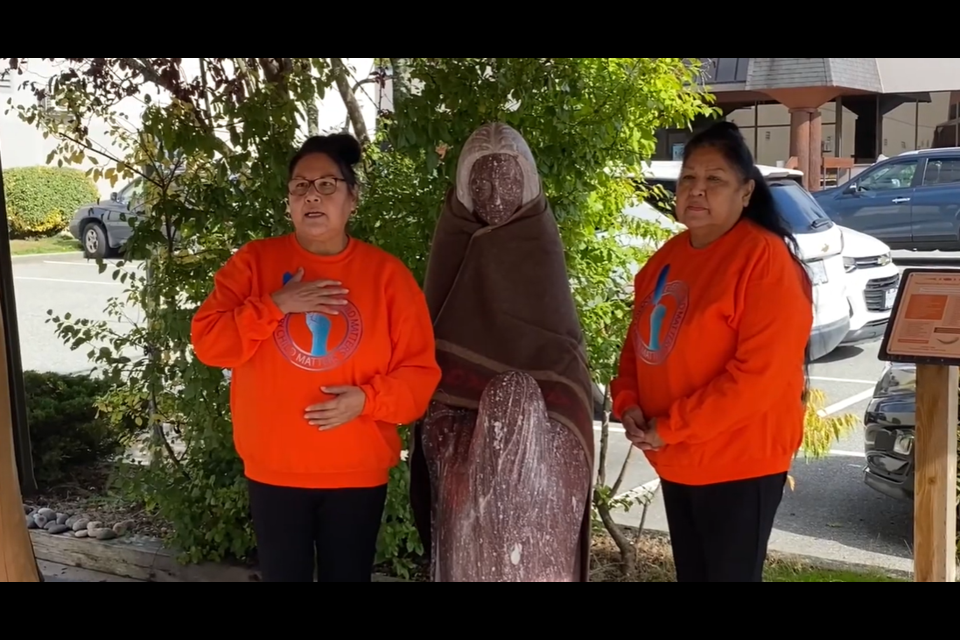On the first National Day for Truth and Reconciliation, members of shíshálh Nation shared their experiences at residential schools and the ongoing impacts in a new video.
While the nation originally planned to hold a virtual ceremony on Sept. 30, plans changed due to COVID-19. Instead, elders were recorded at the nation’s memorial site, near where the Sechelt Indian Residential School once stood. Sisters Angelene Valerie Bourne and Audrey Joe draped a new blanket across the shoulders of the Grieving Mother statue, and the culture group performed songs.
National Day for Truth and Reconciliation began as Orange Shirt Day. Since 2013, Orange Shirt Day has commemorated the experiences of those who were forced to attend residential school. It shares the story of Phyllis (Jack) Webstad, whose orange shirt was confiscated on her first day at residential school.
Viewers were advised that the explicit accounts in the video could be extremely traumatic, especially for children, and to watch at their own discretion.
The elders spoke about the abuse they experienced, and how the residential and day schools stole their identity, childhood, language and culture. A settlement agreement of $10,000 each for day scholars was signed in June this year and approved on Sept. 24, but the day scholars have not received an apology from the government.
The elders urged the public to push the government for true reconciliation, real healing and real education.
They also spoke of healing and the future generations. Bourne said they are very proud of the graduation rate of the shíshálh Nation youth in recent years.
Hiwus (Chief) Warren Paull said the National Day for Truth and Reconciliation is a day of reflection and remembrance. It is one to remember and recognize survivors, as well as their resilience and strength.



